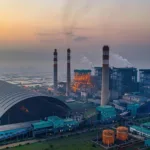Original Report: www.cbc.ca(full story)
- A Calgary-based company, Energy Alberta, is proposing a large-scale nuclear power plant in northern Alberta, potentially replacing fossil fuels on the electricity grid.
- The plan includes two to five Candu reactors, with a projected lifespan of 60-70 years and a maximum output of 4,800 megawatts.
- Alberta’s government has shown support for nuclear power, and local jurisdictions are advocating for the project.
As Alberta confronts the climate crisis and the pressing need for carbon emission reduction, nuclear energy emerges as a prospective alternative to fossil fuels. Since last year, Calgary’s Energy Alberta has been developing a proposal for a nuclear power plant situated in the Peace Region, approximately 400 kilometers northwest of Edmonton. President Scott Henuset indicates that project details remain in flux, but aims to incorporate multiple Candu reactors, with specific sites still under evaluation.
The nuclear initiative has sparked interest from local governments, forming a committee to promote the project’s economic advantages for their region. Terry Ungarian, chair of the regional energy committee, remarked on the prospect of economic benefits if the plant is localized.
Historically, nuclear proposals in the region are not new.
- Energy Alberta’s founders previously attempted a project in 2009, which was later abandoned when sold to Bruce Power.
- The current endeavor emphasizes the need for clean energy amidst the ongoing climate discourse.
Henuset asserts the importance of transitioning to nuclear to maintain a robust oilsands industry, stating, “We need to secure our oilsands’ prosperity.” While small modular reactors (SMRs) promise cheaper and faster construction, Energy Alberta is focusing on larger, conventional reactors, citing the complexity and unproven nature of SMRs.
The company’s preliminary cost estimate for constructing four reactors is approximately $35 billion, yet no government funding is sought for the project. This marks a significant shift, as no nuclear reactor in Canada has been built without public financial support.
The proposed Candu reactors utilize natural uranium, which is abundant in Canada, thereby mitigating costs associated with enrichment programs that pose proliferation risks. As of now, Energy Alberta plans to utilize a new Monark reactor design, aiming to apply for construction licensing by mid-2027, while a backup option remains the Enhanced Candu 6, previously left unsold.
Provincial government support for nuclear energy has been reaffirmed, with Premier Danielle Smith highlighting nuclear’s potential to provide reliable power. Nonetheless, public sentiment is divided; previous surveys indicate a notable percentage of Albertans harbor reservations regarding nuclear initiatives.
Proponents argue nuclear power’s benefits: it generates electricity without carbon emissions, vital in the context of Alberta’s energy transition. However, critics caution that nuclear may not be the swift solution to the pressing climate emergency, suggesting funds might be more effectively allocated towards renewable energy sources.
The management of nuclear waste remains another contentious issue, as spent fuel continues to pose challenges. Long-term storage solutions are under development, with the Nuclear Waste Management Organization tasked to encapsulate and bury spent fuel deep underground.
As consultations progress, regional leaders express optimism about the potential job creation and economic stimulation that could arise from Energy Alberta’s proposed nuclear project, viewing it as a viable alternative to fossil fuel dependency in the province.







